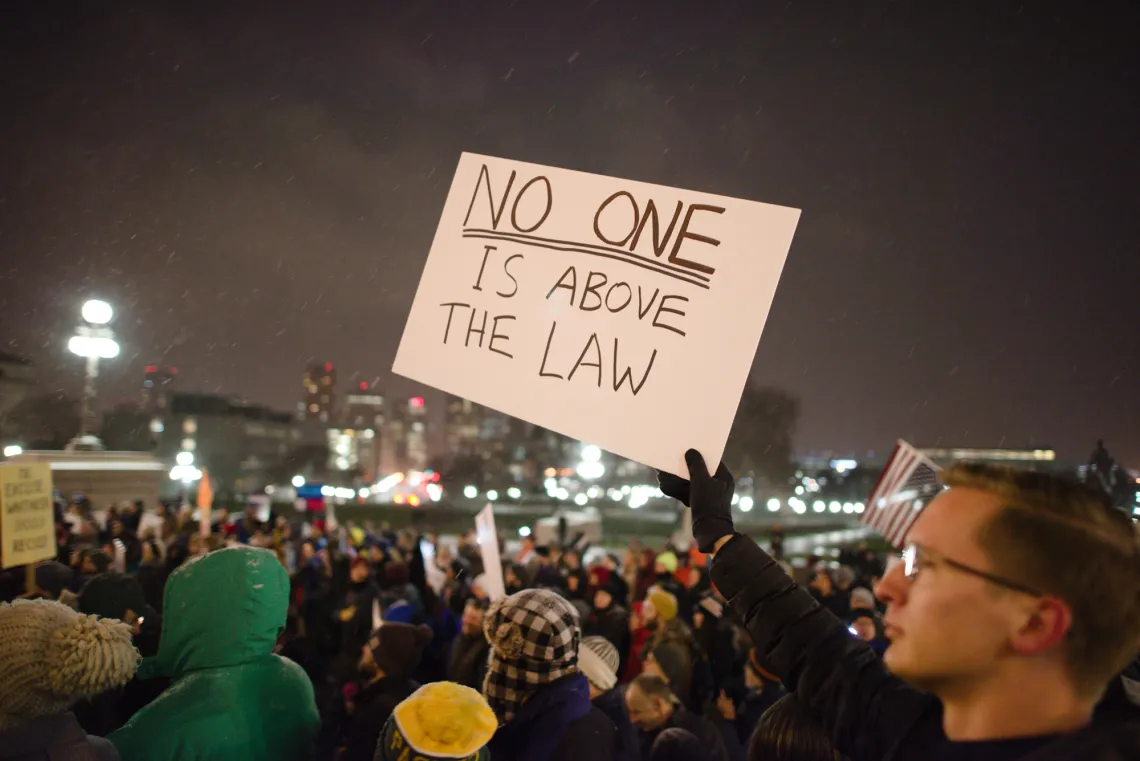Coan Spotlights Special Prosecutor’s Role in Light of Sessions Resignation, Midterm Elections
Coan is a constitutional law expert and author of the upcoming book, “Prosecuting the President”

With President Donald Trump requesting Attorney General Jeff Sessions’ resignation the day after democrats gained the majority in the U.S. House of Representatives, many Americans are once again wondering about the fate of Special Counsel Robert Mueller and his investigation into Russian interference with the 2016 presidential election.
University of Arizona Law Professor Andrew Coan, a constitutional law expert and author of the upcoming book, “Prosecuting the President,” explained the history of the special prosecutor’s role and what could happen next with Trump and Mueller for a variety of media outlets in the days following the midterms.

The Atlantic
“Now It’s Up to the Public”
Nov. 7, 2018
In an op-ed for The Atlantic, Coan writes about the history of investigations of past presidencies.
“Their outcomes aren’t determined by the prosecutors or evidence alone, but by the public’s reaction to what it learns, and to how presidents choose to react,” writes Coan.
The first special prosecutor was appointed by President Ulysses S. Grant in 1875 to investigate a corruption scandal that threatened his administration. Coan writes, “Ever since, both Democratic and Republican presidents have appointed special prosecutors and permitted them to operate with unusual independence from presidential oversight. In short order, this became a standard method for quelling political scandals. By appointing an outside prosecutor, the president could signal confidence in his own innocence and reaffirm his commitment to the rule of law.”
He goes on to explain the response to the three presidents who fired special prosecutors.
“The most important lesson of this history is that special prosecutors are incapable of saving us from ourselves. If Trump thinks he can fire Mueller without suffering serious political fallout, he has the power to do it. Three previous presidents have exercised this power. Grant and Truman, both lame ducks nearing the end of their term, escaped without serious consequence, though their parties suffered electoral losses. Nixon lived to regret it.”
While Trump has the authority to fire Mueller at any time, the American public can be a “potent check,” as was the case when Nixon was forced to appoint a second special prosecutor in the Watergate investigation due to public outcry.
Says Coan, “In the end, it is up to the American people, who will get the democracy they deserve.”
San Francisco Chronicle
“President Grant fired his special prosecutor, but Nixon paid a big price”
Nov. 9, 2018
In this op-ed, Coan goes into further detail about the circumstances surrounding Grant and Nixon firing their special prosecutors.
“At this pivotal moment, history provides a helpful guide,” writes Coan. “And the first lesson history teaches is that presidents do not always pay a price for interfering with special prosecutor investigations.”
He draws comparisons between Trump and both Grant—who suffered no political fallout—and Nixon, whose “fate has served as a cautionary tale for presidents who might be tempted to interfere with a special prosecutor investigation.”
There are circumstances in place for Trump that signal he could follow either Grant or Nixon’s path, explains Coan. From the role of the media to changing democratic norms to shifting voter support, any number of variables could dramatically affect what happens with Trump and Mueller’s investigation.
Coan closes the op-ed by quoting Nixon’s fired Watergate special prosecutor, Archibald Cox.
“As for the rest of us, Cox put it well: ‘Whether we shall continue to be a government of laws and not of men is now for Congress and ultimately the American people.’ Of all the lessons of history, this is the deepest and the most sobering.”
New York Post
“Why Republicans actually have the upper hand after the midterms”
Nov. 10, 2018
While Democrats are celebrating regaining control of the U.S. House of Representatives, Coan explained to the New York Post that they will have to refrain from the drastic move of impeaching President Trump.
“Pursuing impeachment would exacerbate polarization and could damage the social fabric in fairly serious ways,” he said. (Coan adds that if more clear-cut evidence of collusion is produced, that could make impeachment a more realistic option.)
Coan went on to say that even a serious investigation by a special prosecutor might not be enough to lose the support of his own party.
“The present political environment is especially ominous for the Mueller investigation and for special prosecutors in general,” Coan said. “The extreme polarization of the parties makes it significantly less likely for members of a president’s own party to abandon him, even in the face of serious allegations.”
Photo: "Protest against Trump removing the U.S. attorney general" by Fibonacci Blue is licensed under CC BY 2.0
